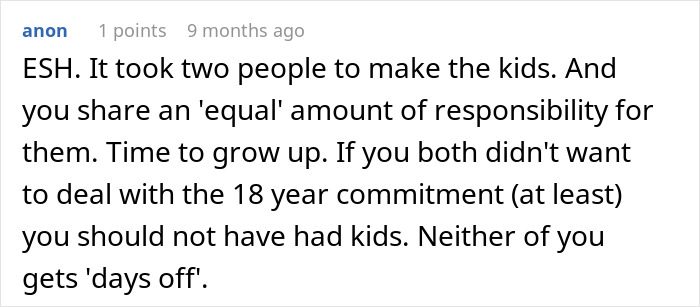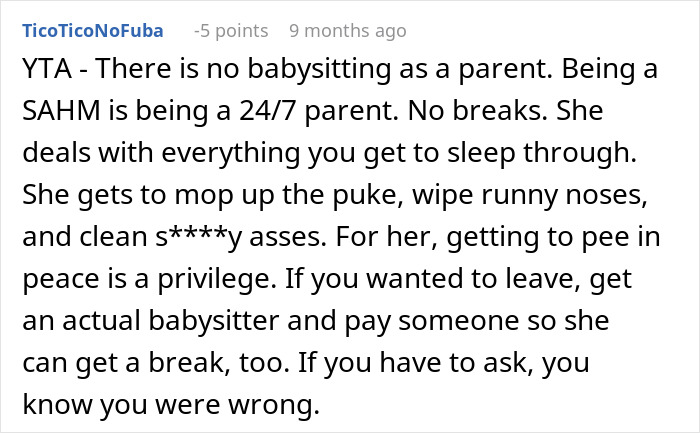Every parent needs a break once in a while. The bigger part of their day revolves around taking care of someone else, and the all-consuming tasks can quickly become emotionally and physically exhausting. Time off helps them refill their cups and be a better parent for their children.
After working intense 60-hour weeks and balancing parenthood, redditor Holiday-Kangaroo4152 was long overdue for a day to himself. So he informed his wife he would be taking a brief break and asked her not to assign childcare or any chores to him. However, on the day, she ‘forgot’ about it, majorly getting under the husband’s skin.
Scroll down to find the full story and a conversation with psychologist Dr. Tamara Soles and parenting coach Jamie Buzzelle, who kindly agreed to tell us more about the importance of taking mental health breaks for parents.
Every parent needs a break once in a while. However, this can be impossible without the support of significant other

Image credits: Keira Burton (not the actual photo)
This husband found himself not being able to have even one day off because his wife refused to free him from housework
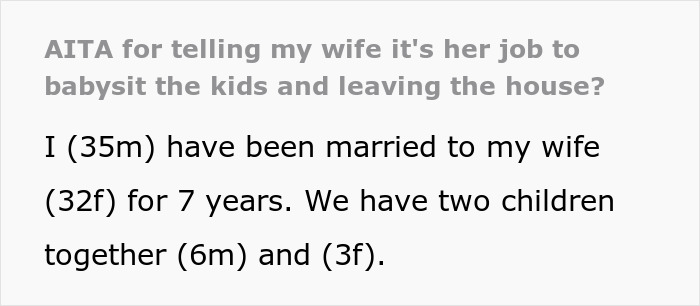
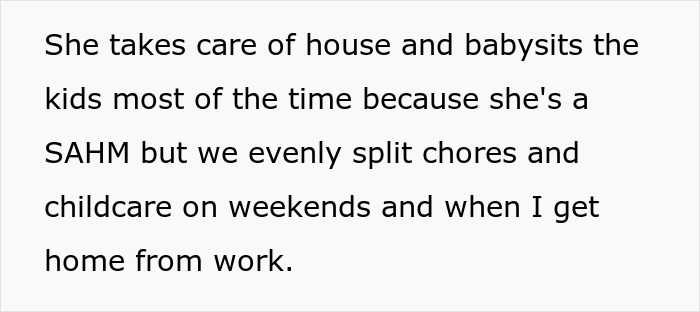
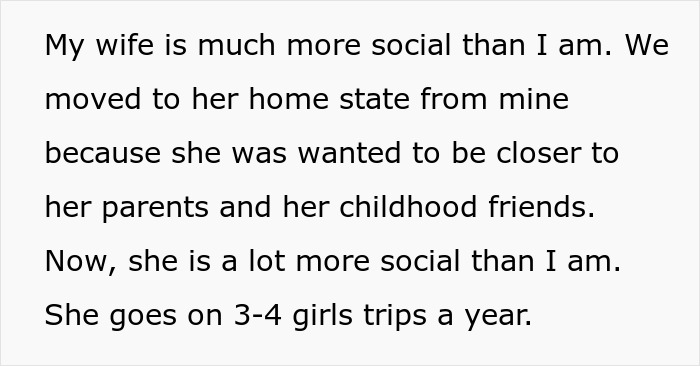

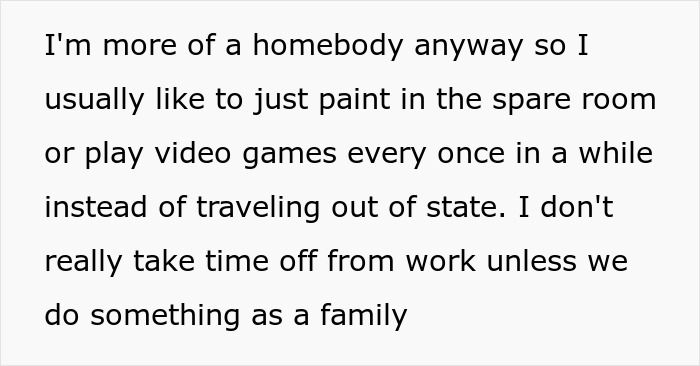
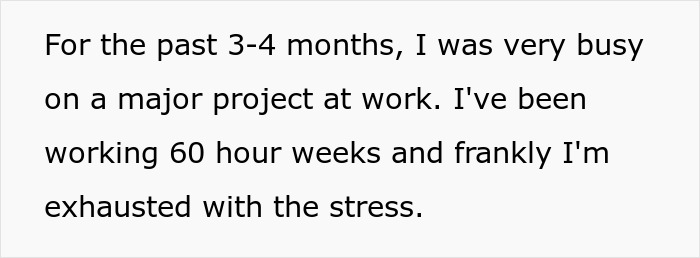
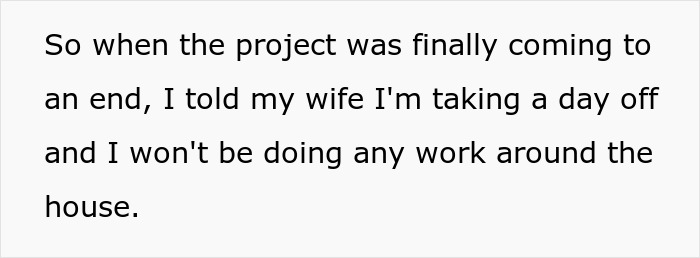
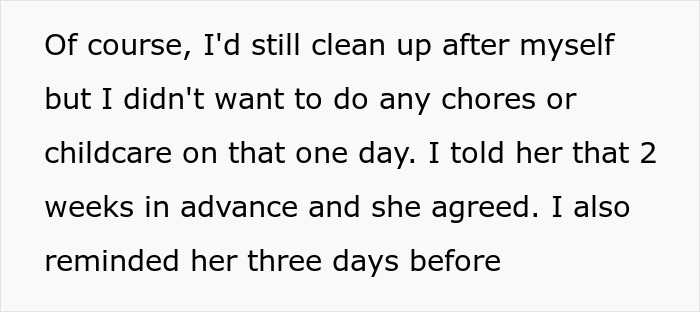
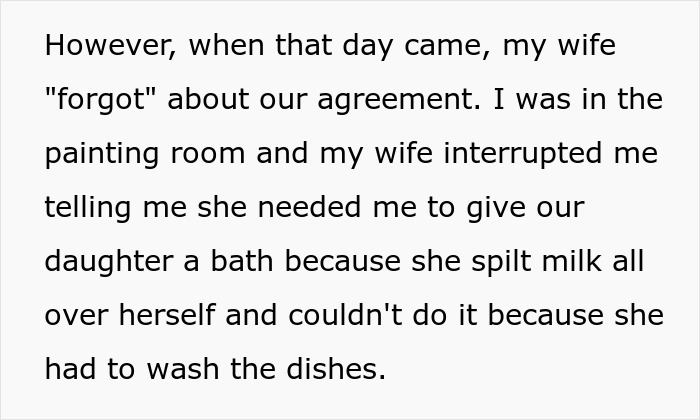
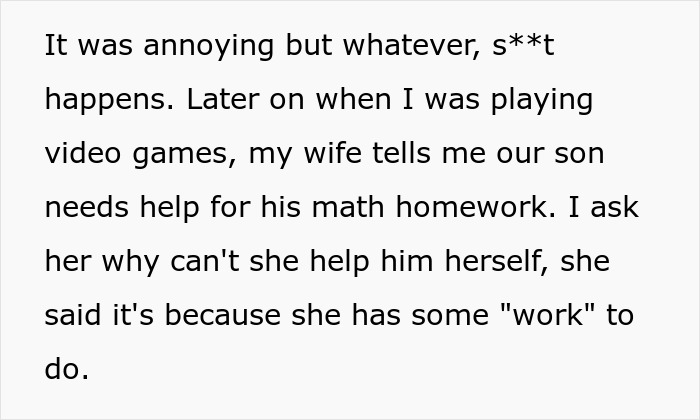
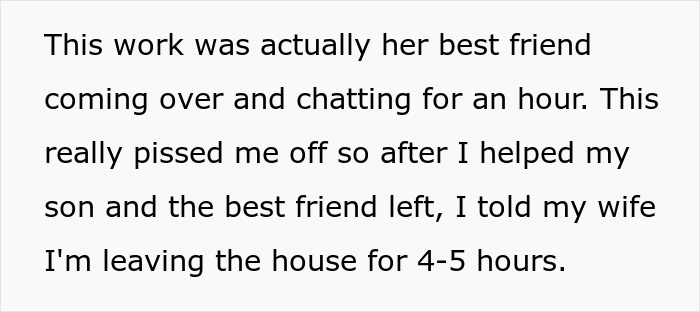
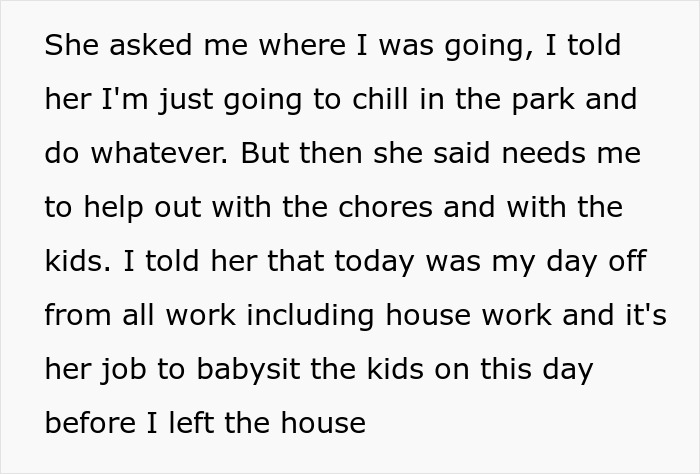
Image credits: RDNE Stock project (not the actual photo)
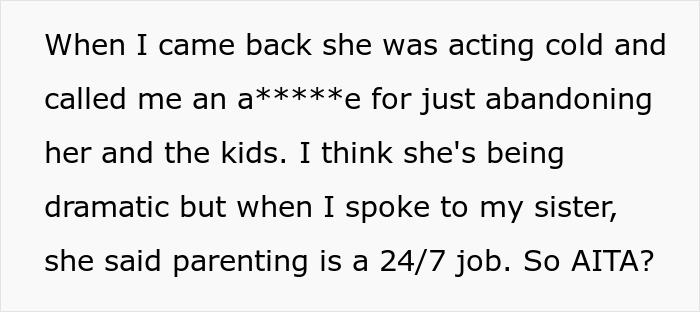
Image source: Holiday-Kangaroo4152
66% of parents around the world suffer from burnout
In the last few years, more than 66% of parents have suffered from burnout, thanks to the pandemic. A 42-country study has found that parents in the United States are feeling the most exhausted. While paid parental leave and aid for childcare would help to take things off parent’s plates, making sure to take care of themselves should be more of a priority.
Parenting coach Jamie Buzzelle tells Bored Panda that parents work around the clock, which takes a toll on their mental health as caring for others takes a lot of emotional energy. “If we don’t replenish our emotional cups, we are not only pouring from an empty cup, but this has a drastic impact on our nervous systems, and over time this leads to burnout, and chronic stress, which then impact our bodies through secondary illnesses,” she says.
“Our mental health drives our physical health in so many ways, and it is a cycle where one impacts the other on repeat. So by taking mental health breaks, you are taking care of yourself not only mentally, but physically as well, and it can be considered a form of prevention.”
Psychologist Dr. Tamara Soles mentions that parents who care for themselves are better at regulating their emotions, which is, understandably, the toughest part of raising children. “We have to be able to manage our own emotions before we can help them learn to manage theirs,” she explains.
“Caring for ourselves as parents also means we are modeling good self-care to our children. As many of us work toward gender parity and reducing the mental and emotional load of mothers in particular, it’s important not to buy into the narrative that we are “good parents” if we are always busy and never have a moment to breathe.”

Image credits: Dương Nhân (not the actual photo)
When a parent is struggling, they should let the other one know if a break is needed
How this break looks may depend on the individual. One person might need to leave home and catch some fresh air outside, while the other may feel content going to a different room and meditating or listening to relaxing music. The focus should be not on when and how long the activity is, but on how it makes one feel. If the person is left refreshed and rejuvenated after, it can count as a mental health break. If not, there are plenty of different things to try. Remember, everyone’s needs are different, and understanding your individual ones is key.
In order to get the most out of your rest, Buzzelle recommends setting boundaries with the family and scheduling time off by proactively communicating with them. “This would look like, ‘You are so important to me, but I am also important, and I need some time to take care of myself, just like I take care of you. I need x time for me this week, so how can we make this happen?'” she explains.
“Asserting your needs is great modeling for kids as well because they see their parents taking care of themselves rather than running ragged with no breaks. This can also help break generational patterns of behavior from continuing to be passed on down the familial line,” Buzzelle adds.
When a parent is struggling, they should let the other one know if a break is needed. Soles suggests having a code word or something as straightforward as saying, “I’m finding myself having a very hard time tonight. Would you be able to do story time tonight so I can take a walk?”
She also recommends keeping in mind that “when we think of mental health breaks in small, everyday actions, it makes it much easier to integrate into a family culture. Going for a walk after dinner, taking some deep breaths at bedtime, and eating slowly to enjoy our meals are all examples of self-care.
I think society sets parents up to fail when we present mental health breaks as only being big things like a spa day or a vacation. Those things may be relaxing, but they are not as restorative as daily habits that are good for your brain and body.”
Without a partner’s support, it’s still important to find ways to have activities that help parent’s mental health
In those cases where a parent doesn’t receive support from their partner when a break is needed, Soles advises them to still find ways to have those activities that support their mental health. “Maybe it is going for a walk during your lunch at work, calling on friends and family for support, trying to focus on your sleep and exercise. If couples are struggling to align their values even after conversations and efforts, a couples therapist may be helpful.”
Meanwhile, Buzzelle recommends checking in with the other person and taking a deeper look into the relationship. “Sometimes your partner may also be burned out, or feeling overwhelmed, and so they might feel threatened or worried when you need to take your own time.
Remember, that, as parents and partners, you’re on the same team. If you’re receiving some pushback, then get curious about what’s going on, and try to come up with a plan that works for both partners.”

Image credits: Pixabay (not the actual photo)
The author provided more information in the comments
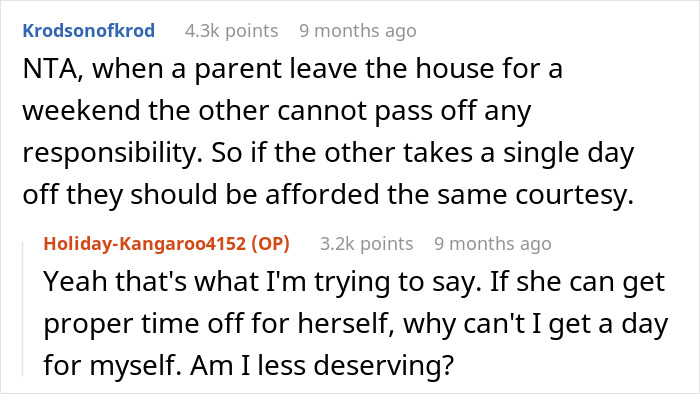
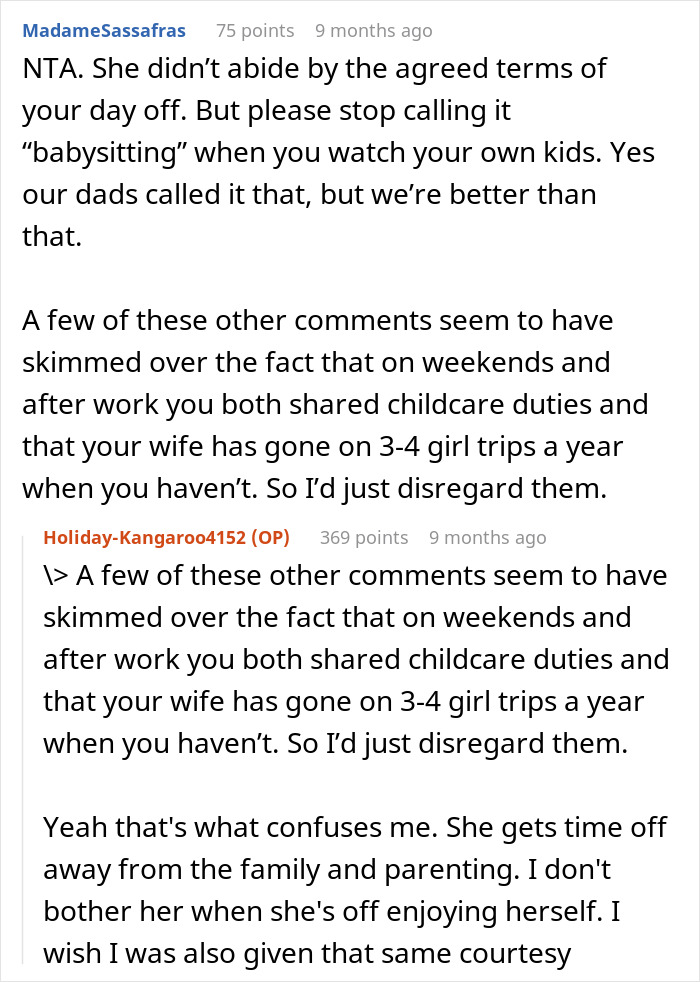
Some readers supported the husband
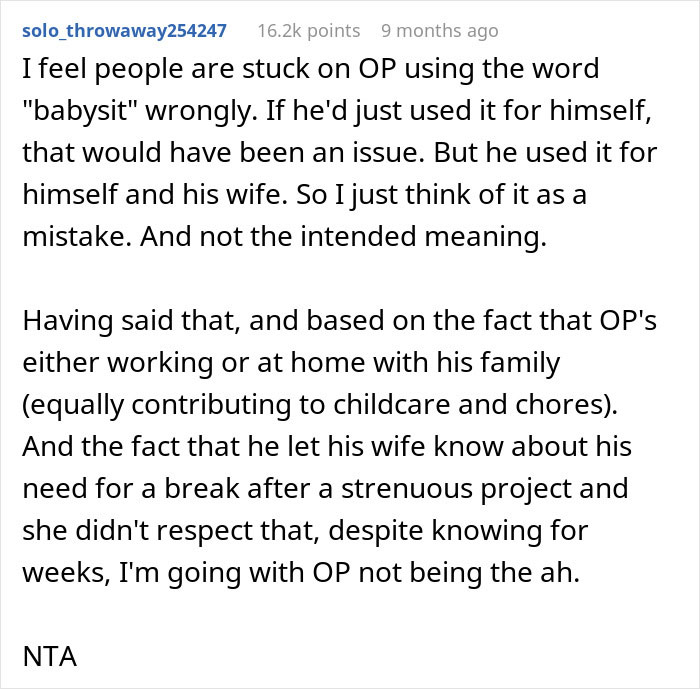
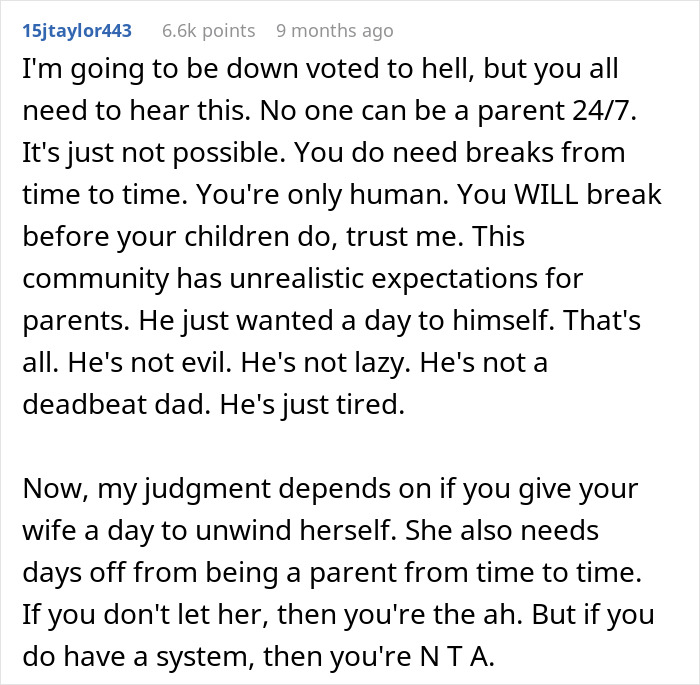


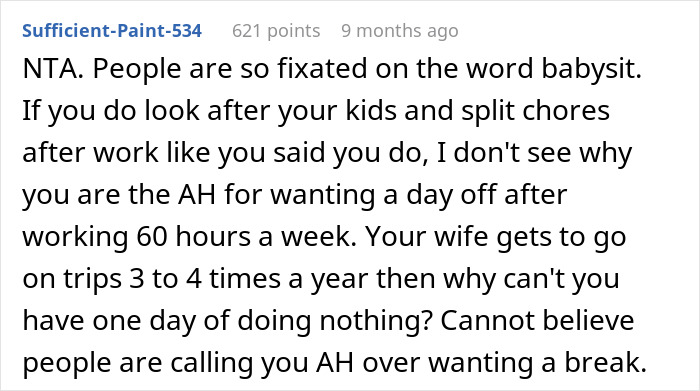
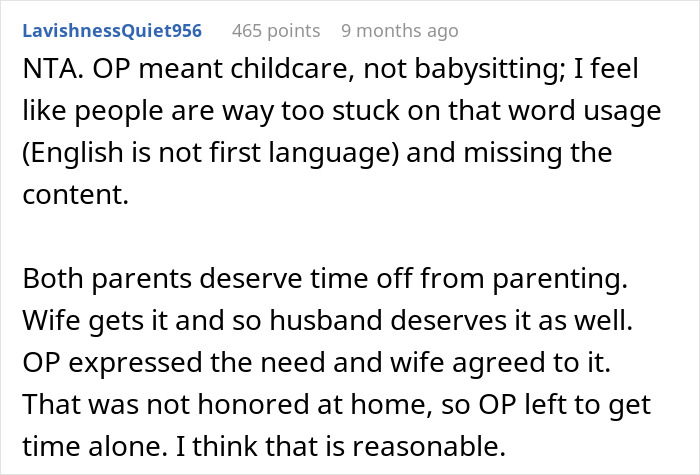
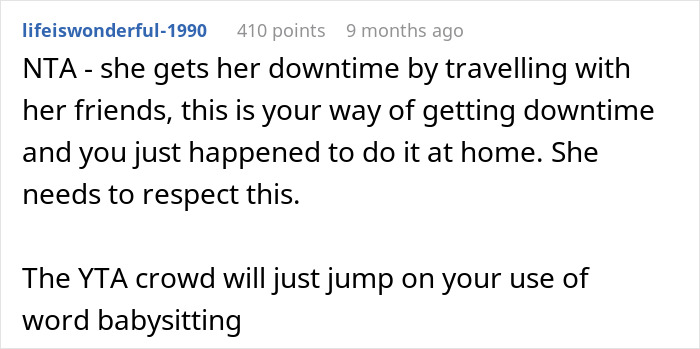
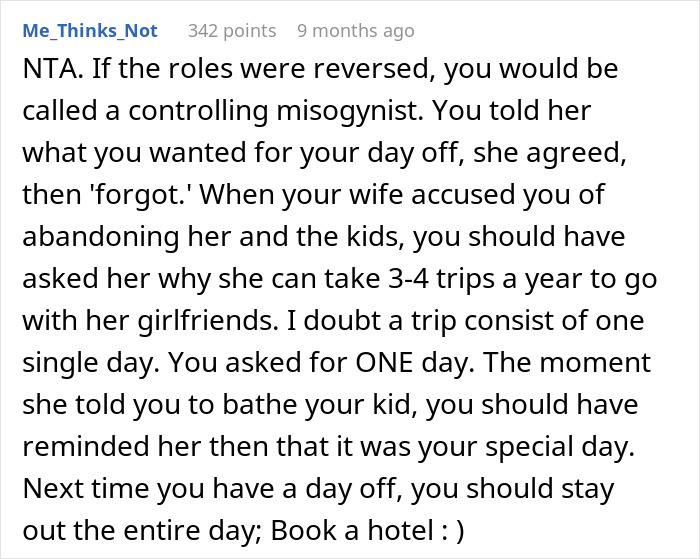
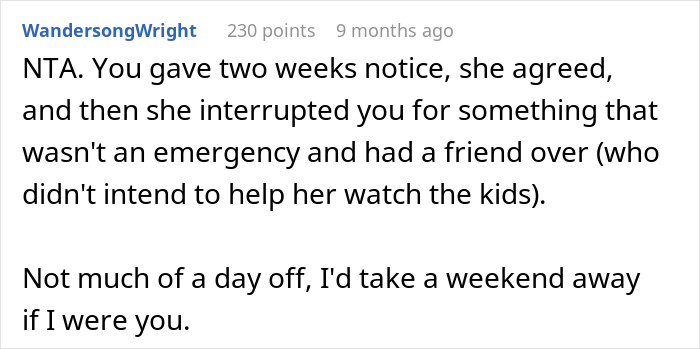


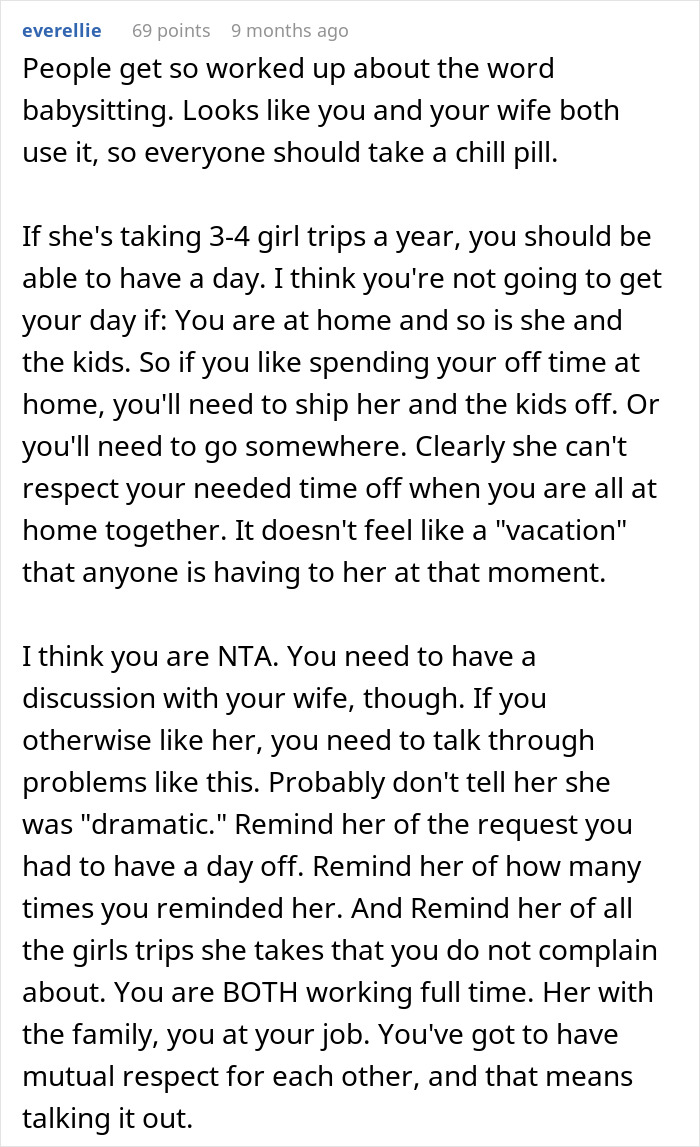
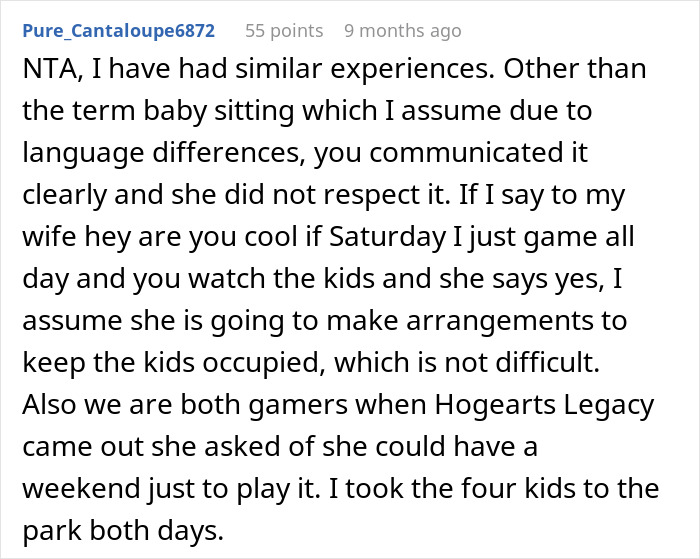
Others thought he was the jerk in this situation
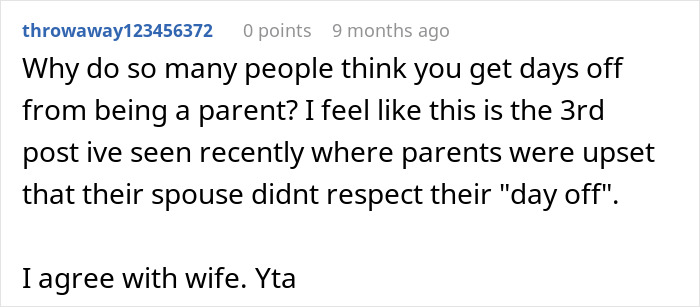

Some even believed that they were both wrong

